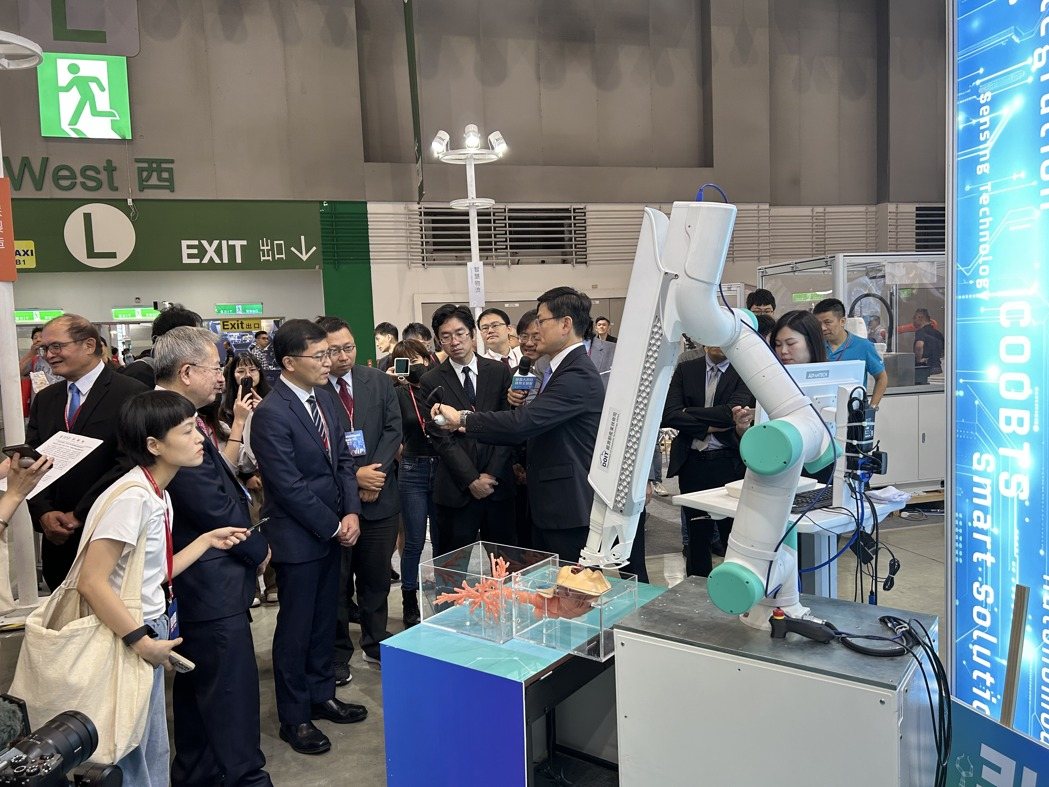Taiwan Showcases Smart Robotics Innovations at 2025 Taiwan Robotics and Smart Automation Exhibition
2025/08/27 | By CENSThe global robotics industry is entering a period of explosive cross-domain applications, while Taiwan is embracing new opportunities in smart manufacturing and smart healthcare. The 2025 Taiwan Robotics and Smart Automation Exhibition opened on the 20th, with the Ministry of Economic Affairs' Department of Industrial Technology (DoIT) presenting its “Technology R&D Pavilion.” The pavilion featured multiple groundbreaking technologies, including Taiwan’s first medical endoscopy robot, which are now being transferred to manufacturers to create business opportunities, making it one of the highlights of the show.
This year' s pavilion integrated research achievements from the Industrial Technology Research Institute (ITRI), the Precision Machinery Research and Development Center (PMC), and others. Focusing on AI and smart robotics, it showcased 11 cross-domain innovations, offering visitors a glimpse into the next wave of smart healthcare and manufacturing transformation.
Key technologies on display included:
Medical Endoscopy Robot with AI navigation capable of reaching 90% of lung areas, operable without lead aprons.
Nursing Support Robot System, designed to ease the workload of healthcare staff.
Digital Twin Giant Gantry Welding Robot, developed for large-scale ship hull manufacturing.
Zou Zongxun, Senior Technical Specialist at DoIT, stated that in the face of global supply chain restructuring and industrial upgrading, the focus has shifted from “manufacturing” to “smart manufacturing.”
Over the past six years, DoIT has invested in smart robotics and AI core technologies to strengthen domestic R&D capacity and cross-domain system integration. These efforts have generated 70 patents, facilitated more than 300 technology transfers and industrial services, and driven nearly NT$12 billion in corporate investment and derivative output.
The Medical Endoscopy Robot, developed by ITRI, eliminates the need for external punctures and reduces complications. Physicians can remotely operate endoscopes for lung examinations without wearing heavy lead aprons, minimizing X-ray exposure and infection risks. The robot features omnidirectional movement, autonomous navigation, and airway recognition, enabling precise lesion localization and sampling. It has passed cytotoxicity and electrical safety tests and is undergoing clinical validation with Taipei Veterans General Hospital.
To address labor shortages in healthcare, ITRI also introduced the Smart Transport Robot to assist with medical supply delivery. Currently deployed at Changhua Christian Hospital, it helps improve service quality and workforce flexibility. In addition, the Medical Support Robot System features a dual-arm, 17-axis collaborative robot with autonomous navigation, aimed at assisting surgical instrument preparation in the future.
For high-precision shipbuilding applications, ITRI developed the Digital Twin Giant Gantry Welding Robot, which integrates virtual-physical simulation, remote commissioning, and 12-axis collaborative control. It achieves welding accuracy within 2 millimeters, reduces labor costs by 50%, and improves efficiency by 50%. The system is already being applied in cargo ship welding at China Steel Corporation’s machinery division.
Other innovations included ITRI’s Workpiece Inspection Data Simulation and Synthesis Technology, which uses a virtual-physical fusion platform and generative AI quality inspection to detect metal surface defects. The system shortens model training time by 50% and has been validated at Taichung Precision Science Park. Meanwhile, PMC developed Human-Machine Motion Intent Detection Technology, which dynamically monitors human joint movement and robotic arm intent. Already adopted by Chuan Mai Enterprise, it has boosted production efficiency by 20% and reduced costs by 15%.
By leveraging strengths in ICT, manufacturing, and healthcare, Taiwan is building an integrated ecosystem for smart robotics. DoIT emphasized that it will continue to promote cross-domain collaboration, foster industrial applications, and strengthen Taiwan's global competitiveness in both smart manufacturing and smart healthcare robotics.


